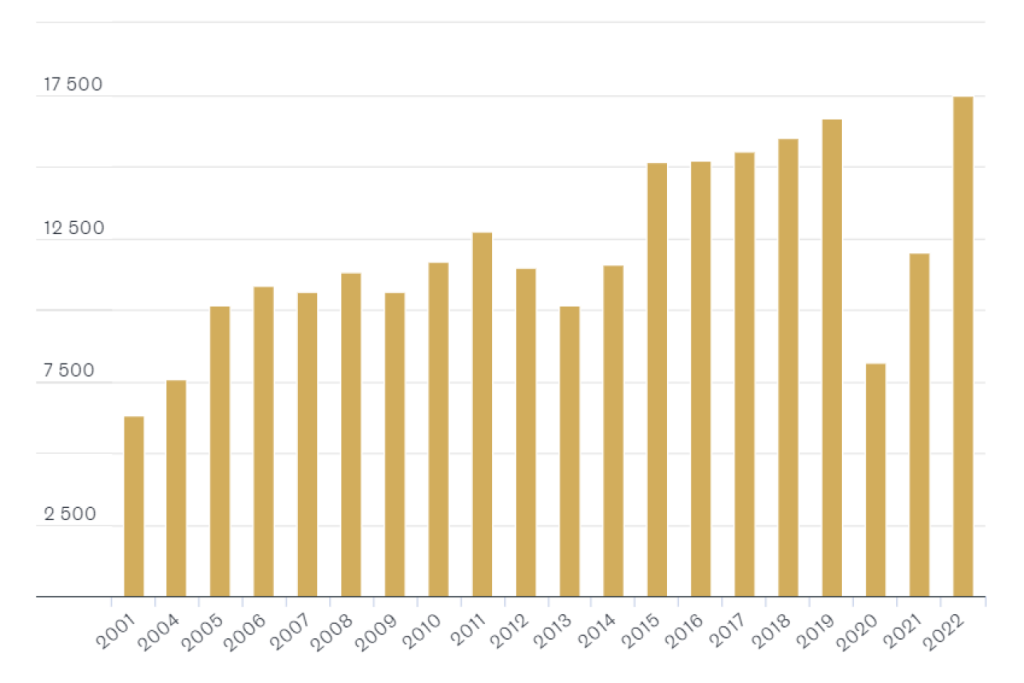The Abbey Pierre Foundation warns that 140,000 people will once again be at risk of eviction starting on April 1st, as the winter truce established in 1956 prohibiting evictions between November 1st and March 31st at midnight comes to an end. While tenants are not evicted during the truce, legal proceedings continue during these five months. In 2019, 156,378 households were taken to court due to rental disputes, mainly for non-payment of rent or lack of insurance. That same year, 130,514 eviction orders were issued. The number of eviction decisions has increased by 15% over the past decade, along with a rise in the number of eviction notices to vacate premises at 68,241 in 2018.
In 2022, 17,500 households were evicted with the intervention of public authorities, affecting around 38,000 people, according to the Abbey Pierre Foundation. For 2023, the Ministry of Housing reported to Le Monde that 21,500 households have been evicted, a 23% increase from the previous year. This rise can be partially attributed to a catch-up effect from the Covid years when the winter truce was extended. However, this marks a doubling compared to the levels in 2010 and a tripling compared to the early 2000s. The introduction of the law passed on July 27, 2023, aimed to protect housing from unlawful occupation and introduced harsher sanctions against squatters, as well as a clause in rental contracts for automatic termination in case of rent arrears.
It also created a new offense, punishable by a fine of 7,500 euros, for tenants in the private housing sector who remain in their homes after an eviction judgment for unpaid rent, except during the winter truce. The law also aims to enhance the prevention of eviction by clarifying the roles of the coordination commissions for the prevention of evictions, particularly at the local level, to facilitate the resumption of rent payments by establishing connections between local authorities, the Bank of France, or the Family Allowance Fund. In its latest press release, the Abbey Pierre Foundation expresses concerns about a potential increase in evictions in the future due to the increasing precarity of households leading to a rise in rental arrears.
The Foundation urges the government to reverse this trend and adopt a proactive policy in preventing evictions, promoting housing production, and ensuring access to housing. The law represents a significant shift in housing policy, with stricter measures being introduced to prevent unlawful occupation and address issues related to rent arrears. However, it also highlights the challenges faced by vulnerable households and the need for a more comprehensive approach to address the root causes of evictions, such as financial instability and lack of affordable housing options. As the number of evictions continues to rise, it is crucial for policymakers to prioritize preventative measures and support services to help vulnerable individuals and families stay in their homes.


